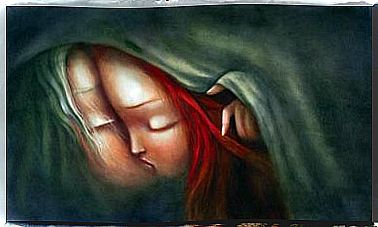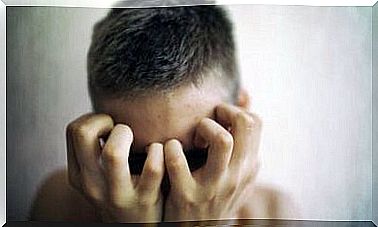Narcolepsy: Symptoms And Treatment

Many people say that narcolepsy is more of a curse than a disease. It is a chronic and neurological sleep disorder, in which patients, in addition to excessive sleepiness, may experience sudden sleep paralysis, hallucinations and even fainting. In this article, we look at the symptoms and treatment of narcolepsy.
Narcolepsy is both disabling and peculiar at the same time. It occurs only occasionally in the general population. There is still no cure for this condition. However, there are several treatments that ensure that the patient has a reasonable quality of life and is able to take control of their daily life.
dr. Meir H. Kryger, an expert in medicine and sleep psychology, says there are few conditions more complex than narcolepsy. He explains in one of his articles that he has treated patients who, instead of receiving a narcolepsy diagnosis, had been mistakenly diagnosed with schizophrenia.
Children and teenagers may be mistaken because of the hallucinations that the condition can cause. They see imaginary objects and people and these kinds of experiences cause a lot of trauma.
Living in a world where one cannot tell the difference between what is real and what belongs in the dream world is not easy. It is a life full of fear and frustration because the patient feels that he or she has no control over their own body.

What is narcolepsy?
Narcolepsy is a neurological disorder, but scientists still don’t understand what causes it. One thing experts have been able to clarify is that it is a hereditary disease. There are certain genetic identifiers that determine whether a person is at risk of getting it or not.
Another feature of narcolepsy is that it is an autoimmune disease. For unknown reasons, the body attacks itself, altering certain processes and reversing the body’s patterns and cycles. Therefore, sleep patterns are disrupted and sufferers experience dreams and nightmares while still awake.
Characteristics of narcolepsy
When we think of someone who suffers from narcolepsy, we imagine a person who can fall into a deep sleep overnight. We think of someone who sleeps excessively and suffers from sleepwalking at night. However, it is much more than that. Here are some of the symptoms of narcolepsy:
- Most people suffer from mood disorders. In addition, intense emotions, sometimes even a simple laugh, can lead to muscle paralysis and fainting.
- Another symptom is daytime sleepiness. A curious aspect of this condition is that the person’s need to close their eyes and sleep does not only arise in monotonously repetitive situations, such as when sitting on the couch watching TV or reading. Narcolepsy also develops when the person drives, works, or even shares a meal with friends.
- Hallucinations. As we mentioned at the outset, the patient’s most intense experience is hallucinations, which can be auditory, visual, or tactile.
- Sleep paralysis is another common symptom. This is a form of parasomnia that occurs somewhere between sleep and awake states. The person is unable to move or react, causing him to experience an intense sense of fear.
- It is also common for the patient to suffer from memory and concentration problems.
- Some people also suffer from eating disorders.

Treatments
Narcolepsy affects men and women equally, and even affects animals. Each patient’s treatment will be different, depending on his or her individual needs. Here are the most common treatment strategies:
- Scheduled naps and good sleep hygiene.
- Doctors often prescribe stimulants such as methylphenidate, dextroamphetamine, and methamphetamine.
- For the treatment of hypnagogic hallucinations and sleep paralysis, antidepressants, especially tricyclic antidepressants, are very useful.

In conclusion, we can state that although this disease is not very common, it can have a major impact on the patient’s daily life.
In addition, it is also common for the patient to feel that he has lost control and that he is going crazy, especially if the hallucinations are frequent. However, with the help of good medical professionals and appropriate treatment, the patient can make great progress.
We need to be more sensitive to people who suffer from this sleep disorder and treat their condition as something very ordinary, not something special.









